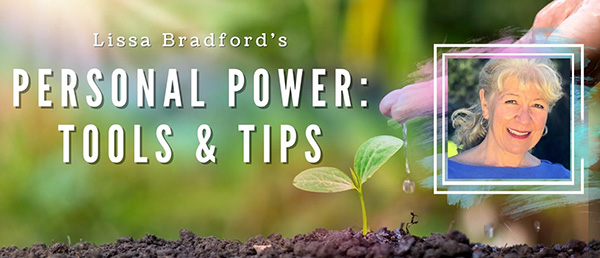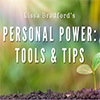
How
do we communicate our needs and speak our truth to family and
friends?
Who is our family or tribe? Who are our trusted people?
Contributing
Writer: Lissa E. Bradford, CPLC, BCC, MDiv.
As
we mark Pride Month, it's a great time to assess our
emotional support systems and how we communicate our specific
needs to family and friends.
The energies of the people we have around us that are safe,
nurturing, and positive can be a huge help as we navigate the
challenges of life!
But too often we remain in relationships that are unhealthy,
non-supportive, energy-draining and even toxic. Dr.
Judith Orloff calls them, "energy vampires." It's such an
accurate description. We all know some "energy vampires" in
our lives. Many times, our blood family can be these people.
Sometimes the anxiety and fear of conflict or the manipulation
and control we succumb to from others can be overwhelming. For
persons who are weighing the "pros" and "cons" of having a hard
conversation, whether coming out to family and friends, or setting
new boundaries with loved ones or co-workers, those relationships-
good or negative- can magnify exponentially. Right?
The "good" supports become very clear, very quickly when we're
needing safe space. But the negative energies, agendas and persons
(energy vampires) also become very clear.
What do we do when those negative persons are our blood family?
How do we appropriately deal with those relationships? The answers
can be complicated.
There are two distinctive parts to address: 1) Who do we know
is safe and supportive for us in our blood family. Who do we
anticipate will not be safe or supportive for us in our blood
family? And 2) Who are the safe, supportive persons in our chosen
family? In the family we have created with other loved ones
and friends?
For persons struggling with little or no family support, friends-
those persons in our "chosen family," - can provide crucial
emotional support, acceptance, and understanding. A chosen family
is a group who have chosen to come together and form a bond
and sense of "family," "community," a safe emotional space to
process feelings and events of life.
Friends can offer a safe and supportive space where LGBTQ+ individuals
can express their true selves without fear of rejection, judgment,
or discrimination. This support network can help persons navigate
difficult family relationships and provide a sense of belonging
and community. Friends can also offer practical help and advice,
such as finding LGBTQ+ friendly resources and services, especially
as things are changing so rapidly in Florida.
Ultimately, friends can be invaluable in helping LGBTQ+ individuals
feel accepted, loved, and supported, even when their blood families
may not be able to provide safe support.
So, where to begin?
Here are some basic steps that can help you set good boundaries
and practice good communication skills with anyone:
- Identify
at least one person, preferably two or three, who you trust
completely. Be protective of who you let in to your inner circle.
Value and nurture those relationships. That is your "tribe."
- Identify
the boundaries you need to set with persons: Take some time
to deeply reflect on your needs and values. Decide specifically
what you need to communicate in a conversation.
- What
can wait till another conversation? It's generally wise to not
overwhelm people, especially if you anticipate push-back.
- What
kind of behaviors, actions, or words from your family members
make you uncomfortable or upset? What pushes your emotional
buttons? Are you willing to remove yourself from a situation
if you become uncomfortable or unsafe?
-
Speak your truth. Communicate your boundaries: It's important
to communicate in a clear and respectful manner. You can start
by letting them know that you need to have a conversation about
some things that are important to you, and that you'd like them
to listen and respect your right to safely communicate, without
interruption. (This is a big one. People LOVE to interrupt!)
- Be
consistent: Clarity, Brevity, Compassion. These are essential
basics to good communication! Stick to your boundaries, even
if some family members/friends/ whoever, push back or react
negatively. It's important to be firm, but kind, brief and consistent,
so that persons you're addressing understand that these boundaries
are non-negotiable.
-
Seek support: Setting boundaries can be difficult, especially
if you have been in a pattern of codependency or enabling behavior
with your family or an unhealthy partner. Consider seeking support
from a counselor, life coach, a support group, or a trusted
friend or mentor who can offer guidance and encouragement as
you navigate this process.
- Take
care of yourself! Remember that setting boundaries is an act
of self-care. Be kind to yourself and prioritize your emotional
and physical well-being as you work to establish healthy boundaries
with your family, friends, or co-workers.
Remember that you do not have to navigate this by yourself unless
you choose to. There is help available!
Check the Tampa Bay Gay LGBTQ+
Ally Business Directory for information and resources (Alternative
Health & Counseling).

https://www.healthyboundarysociety.com/
Lissa
E. Bradford (She/ Her) is a Certified Professional Life
Coach and Counselor with 17 years' experience partnering with
people to teach them new, empowering tools to live their highest
good. Her company, Healthy Boundary Society, LLC provides counseling
support virtually using online video platforms. She is a cisgender
ally for the LGBTQ+ community. Lissa is Pastor of the Church on
the Bayou of Tarpon Springs: an open and affirming community.
Lissa is married and loves animals, birds, fish and plants.
|



